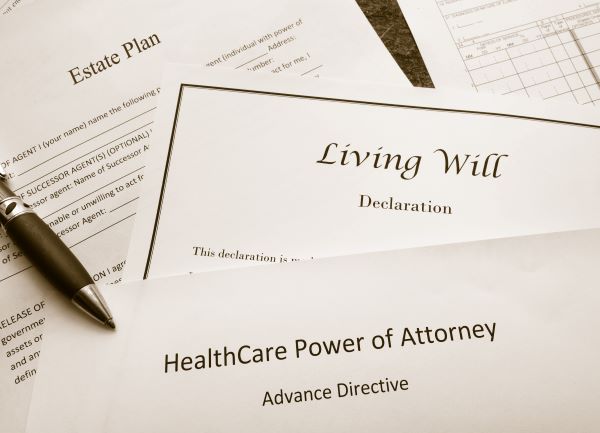Special needs individuals can take advantage of several programs and services offered by the federal…

Exactly What Situations Are Covered by a Living Will?
The living will is a legal document that describes your medical preferences if you can’t make those decisions for yourself. Incapacity can happen for many reasons, including an accident, an illness rendering you too sick to communicate, dementia, anesthesia, a stroke, a coma, and more. While you are still alive, your living will explains what types of medications and health care procedures you prefer. A living will does not distribute your property or assets to heirs after your death.
In combination with a medical power of attorney, these two documents create an advance health care directive. A medical power of attorney designates a person to act as your health care representative or agent. These documents are subsets of an advanced directive that can also go by the name healthcare directive, advance care directive, health care proxy, or health care surrogate, depending on your state.
Personal Preferences and Situations Involving a Living Will
Refusal for admission to an emergency room or hospital
Some individuals will opt to ride out their medical situation at home or another place of their choosing that is not associated with a hospital. Your living will can stipulate this preference.
Mechanical ventilation
If you can’t breathe independently, a ventilator can mechanically pump oxygen throughout your body as if you were breathing. In an emergency, this may be desirable until a medical prognosis is available. However, you may want to identify when and how long you would permit mechanical ventilation. Intubation, a tube placed in the windpipe, also helps your breathing capability. Both procedures can be addressed in your living will.
Cardiopulmonary resuscitation (CPR)
If your heart stops beating, an individual may perform CPR to keep oxygenated blood flowing to the brain. An automated external defibrillator (AED) generally follows CPR when an emergency medical team arrives. This portable device sends an electric shock to restart the heart and get you breathing normally.
Blood transfusions
This process transfers blood products into your circulatory system intravenously to replace lost blood components. The advent of the COVID-19 mRNA vaccine has created controversy for many unvaccinated individuals who are now against receiving a blood transfusion.
Dialysis
If your kidneys can no longer remove waste from your blood and manage fluid levels, regular dialysis mechanically filters and purifies your blood using a machine. Your living will should identify if, when, and how long you would opt for this treatment.
Tube feeding
If you can no longer ingest food normally, a feeding tube to your stomach or intravenously can supply your body with the required fluids and nutrients. If and for how long you are willing to accept this type of feeding can be part of your living will.
Antiviral medications, antibiotics, and painkillers
These first two medicines can treat many infections, but you can identify how aggressively you want to fight them if you are near the end of your life. Some individuals might prefer to let nature take its course, while others may opt for strong medical intervention depending on their age or current overall health condition. Medicating for pain is a personal preference. Some patients are against taking certain painkillers like opioids or benzodiazepines, and your living will can identify these preferences.
Palliative or comfort care
When your medical situation becomes untenable without the possibility of recovery, many individuals prioritize comfort and pain management. This near end-of-life stage often includes a preference to die at home, pain medication, and refusing invasive tests or treatments.
Tissue and organ donation
This type of donation sometimes requires temporary life-sustaining treatment until an organ removal procedure is complete. Your healthcare agent can clarify to medical teams your understanding of the need for temporary intervention to accomplish the larger goal of being an organ donor.
Body donation for scientific study
Your living will can identify the local medical school, university, or donation program you are registered with to donate your body.
End-of-Life Decisions
Interestingly, Physician Orders for Life-Sustaining Treatment (POLST) and a Do Not Resuscitate (DNR) order are not part of a living will, yet the functions are similar. Both are doctor’s orders, while your living will is a legal document.
Deciding what type of care you will permit can be difficult. Your choices affect you and your loved ones, and often the best choice is not obvious or easy. Every state has different requirements for making a living will. Forms are available from your physician, local hospitals, senior centers, and more; these are good starting points for writing your living will.
Elder Law Attorneys
To ensure your living will complements your other estate planning documents and legally achieve your health care goals, you should review your choices with your elder law attorney. They will know the terminology and procedures to establish a legal living will in your state and help provide legitimate copies of this document to family members, powers of attorney, healthcare agents, caregivers, doctors, and hospital or care facilities. Having a comprehensive living will provide peace of mind for you and your family when difficult medical situations present themselves.
We hope you found this article helpful. If you have questions or would like to discuss a personal legal matter, please contact our office at 732-972-1600. We look forward to the opportunity to work with you.



